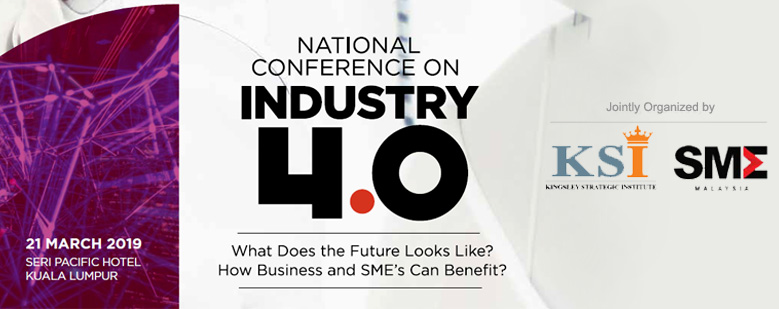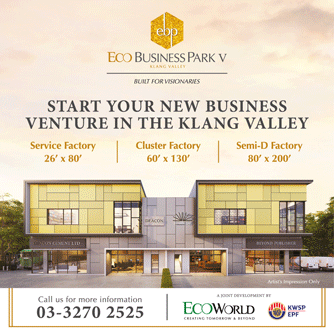AS MALAYSIA gears up for the announcement on Budget 2015 this week, there are growing expectations that the Government will address the issue of the rising cost of living faced by consumers.
Likewise, companies, particularly small and medium enterprises (SMEs), hope to see measures that will address the issue of rising costs.
Additionally, with the impending implementation of GST next year, businesses hope the government will introduce more tax reliefs and incentives under Budget 2015 to spur growth and cushion the impact of rising costs on SMEs.
Prime Minister Datuk Seri Najib Razak is scheduled to table Budget 2015 in Parliament on Oct 10.
Last year’s budget put a stronger emphasis on the development of entrepreneurship through budget allocations and the establishment of the Malaysian Global Innovation and Creativity Centre (MaGIC).
The government also reiterated its commitment to ensuring that SMEs contribute 40% to GDP by 2020 and had proposed an allocation of RM120mil to increase innovation and productivity in SMEs, extended some tax incentive programmes and cushioned the blow of minimum wage.
As businesses await news of next year’s budget, a few SMEs shared their wish lists with Metrobiz.
Metrobiz: What was your view on Budget 2014 from a business perspective?
Mustaffa: It was a good budget focused towards building up the nation’s infrastructure. However, it has minimal impact on businesses in the field of surveillance.
What are you hoping for in Budget 2015?
Mustaffa: Budget 2015 should address security issues in the country, mainly in the maritime and aviation sectors. More sensors should be installed to cover the country’s land mass so that any intrusion either by air or sea is addressed promptly. Recent intrusions in Sabah and also the MH370 incident is an example where such sensors could play a larger role.
They would also provide more opportunities to local expertise. The government should also give the contracts based on merit.
Also, corporate and personal tax should be reduced with the implementation of the GST next year.
Any other thoughts?
Mustaffa: The budget should reduce corruption by increasing the perks and salaries of performing civil servants. This could reduce the unseen cost of corruption to the nation.
What are your thoughts about doing business in Malaysia?
Takala: As the Asean Economic Community (AEC) looms large, world-class connectivity infrastructure will be one of the most essential ingredients of success in a competitive regional free trade zone.
Today, Malaysia is ahead of the curve among similarly developed nations when it comes to digital inclusion, affordability, and the general standard of connectivity. The reason for this is the Government’s and its agencies’ continued work on the Digital Malaysia initiative, a comprehensive plan to further the country into being a digital economy by 2020.
What do you hope to see in Budget 2015?
Takala: TE Connectivity Malaysia hopes to see these initiatives continued in the coming budget.
We also hope to see continued investment on the execution of the broadband, ICT, data centre, and skill development plans. These will be keys in ensuring that Malaysia continues to operate from a position of strength in the region.
Infovalley Group of Companies chief executive officer Mathavan A. Chandran
What do you want to see in Budget 2015?
Mathavan: We do not expect any handouts but we would suggest future Government projects being announced in budgets to also have a clause to prioritise buying from local SMEs.
Secondly, all public sector projects should be opened to local SMEs to encourage innovation. A fund could help to prepare or modify some of the businesses to facilitate this. Such initiatives open up potential business opportunities which could also serve as a track record or become proof of capabilities for the SMEs.
What was your view on Budget 2014 from a business perspective?
Mathavan: It is conventional and lacks an innovative approach to promoting entrepreneurship. We hope this year game-changing policies are put in place as it is also something the rakyat would appreciate such moves.
Living Wing Sdn Bhd business development director Terence Lee
Have you made use of any of the grants or incentives made available for entrepreneurs or small businesses in Malaysia?
Lee: Since the company started, we have not applied for any grants and incentives. There is very limited available information and resource to access aid, even some tax consultants are not aware of them.
Do you have any feedback on aid and incentives that are currently available?
Lee: Though we haven’t applied before, we have heard that aid is not easy to get and we may need to go through an agent or consultant which might be quite costly.
What do you hope to see in Budget 2015 and what kind of incentives would benefit businesses such as yours?
Lee: Usually for imported goods, importers need to pay import duties, depending on the type of goods. For example, for our bottles, it is around 20%. There is also a sales tax of 10% for most of the goods. We believe the Government will be able to collect substantial tax through the expected implementation of GST in April 2015.
We anticipate that the 10% sales tax will be replaced with 6% GST and we hope the Government can waive the customs duties on household products and water bottles. It would really help us make available the products at a lower price and also help consumers buy reusable water bottles and containers at a more affordable prices.
We also hope to see more encouragement from the Government in the promotion of caring for the environment, such as incentives for companies that sell environmentally friendly products services such as energy efficient light bulbs and recycled printing paper which are currently more expensive than the normal options. We believe that an incentive or tax breaks such as the one for hybrid vehicles or energy efficient vehicles will go a long way in encouraging people to adopt a more environmentally friendly lifestyle.
EMC Malaysia managing director Cheam Tat Inn
How do you rate the Government’s ICT efforts?
Cheam: The last few years have seen the Government take a balanced approach to fiscal growth in Malaysia as well as development of the ICT industry.
Efforts in improving connectivity, investments in furthering the reach of high-speed broadband, the nation’s Big-Data Framework, and strengthening the country’s position as a potential regional data centre hub have not gone unnoticed.
At the same time, the government sent a strong message through the Malaysia Education Blueprint 2013-2025 that it will drive the changes needed to transform Malaysia’s workforce and produce talent that can meet the demands of a digital, knowledge-based economy.
We have partnered with universities as well as MDeC and have seen first-hand the efforts of the entire ecosystem towards this end.
What should the Budget address with regards to Malaysia’s ICT industry?
Cheam: I strongly believe that Malaysia’s full potential in ICT has yet to be explored. But we are on the right track. At EMC, we hope that the Government will continue its commitment to the development of the industry through cross-border and industry partnerships, impeccable execution, and very importantly, through investment of time and resources.
Whether it is through skill development or sharing subject matter expertise, we are ready to partner with the Government, agencies, businesses, and academia to realise the potential that Malaysia has in thriving in a digital economy as well as being a regional data centre hub.































